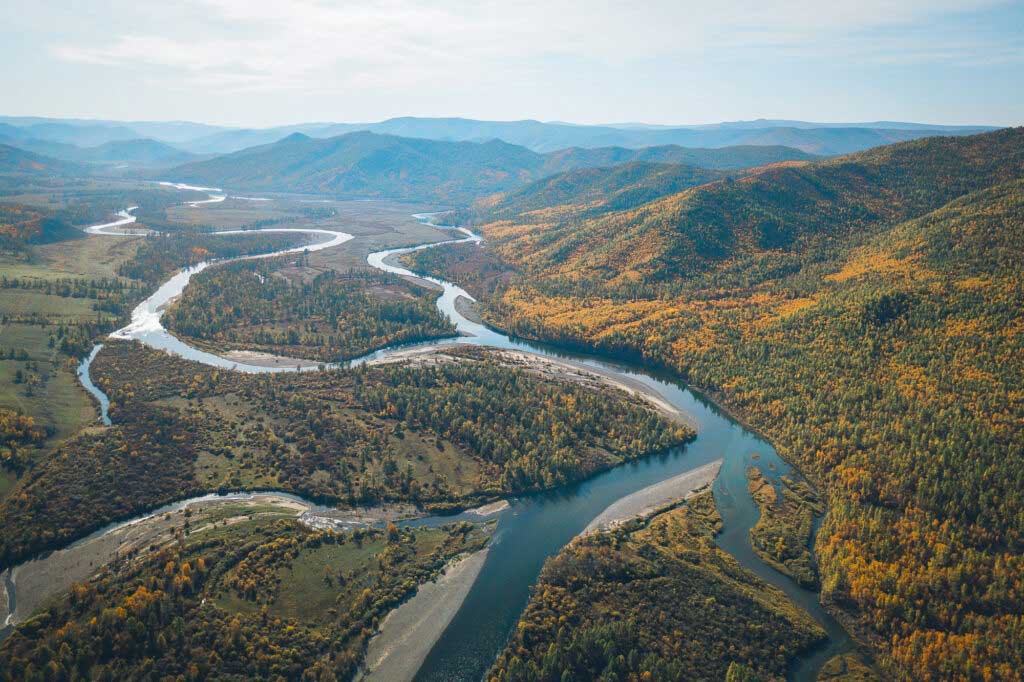
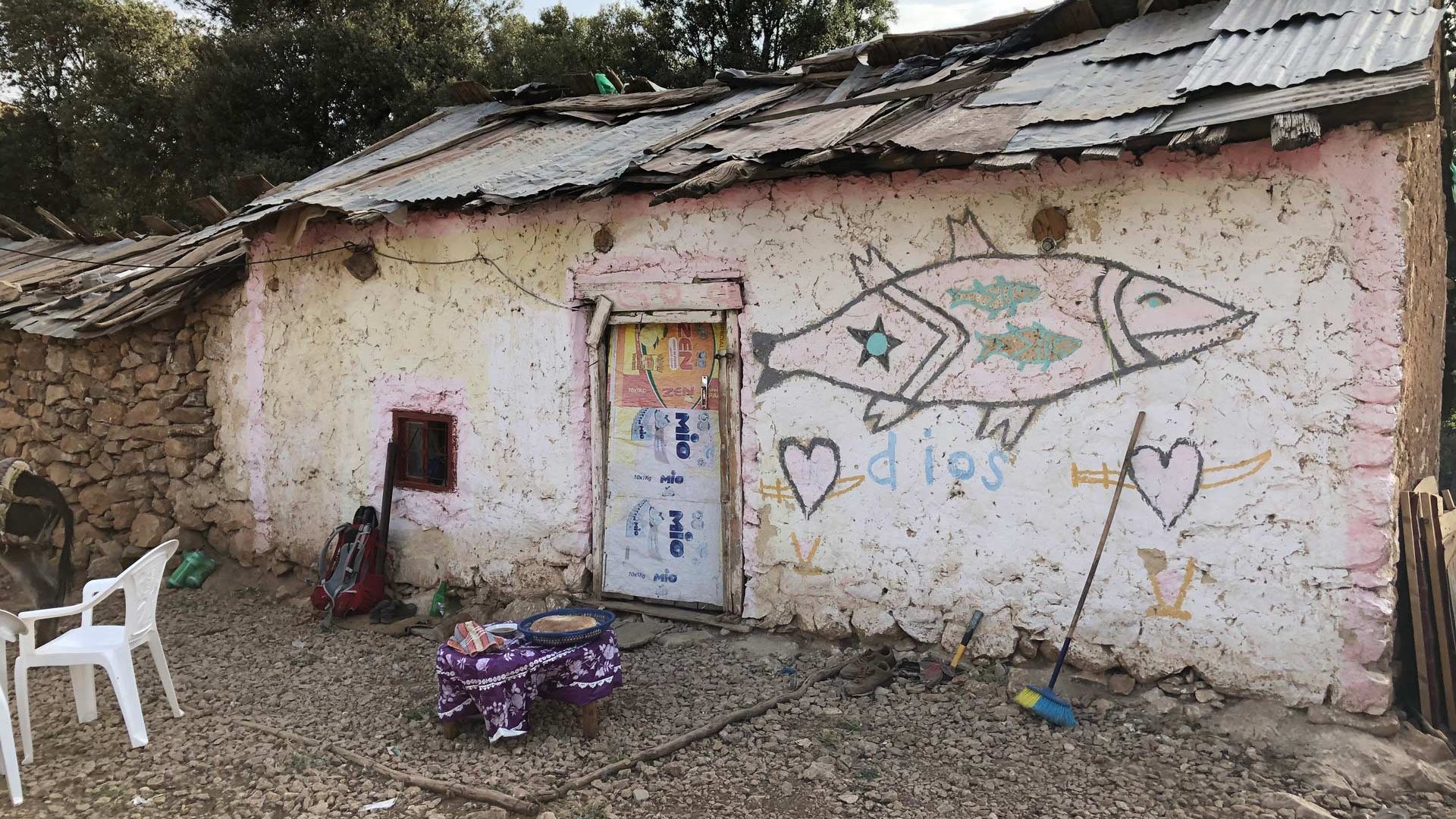
No doubt, the North African kingdom of Morocco dazzles like few places on Earth. Take the vastness of the Sahara Desert, the legendary souks, or the ancient monuments. Then there are the paths less taken— and the guides who earn their livelihoods leading intrepid visitors beyond the usual stopovers. Pandemic-induced travel restrictions have been especially devastating for those who hang their shingle at a rural outpost.
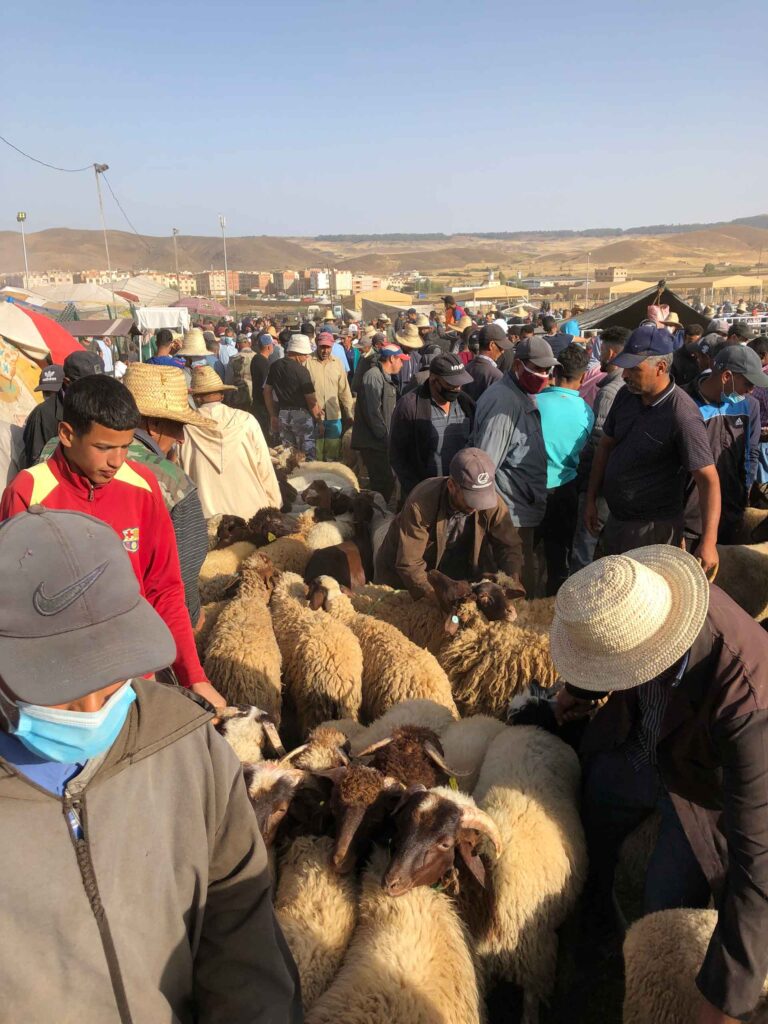
Moroccan adventure guide Karim Boutellaka, operator of Morocco Unexplored, knows this unfortunate reality all too well. His angling business leads fly fishing aficionados to the country’s wild rivers and lakes to cast their lines for trout, pike and black bass. It was a dependable source of income for Boutellaka for years, and a boon to local communities throughout the Atlas Mountains, where clients from around the world spent the night, bought provisions, and rented mules for excursions into the wilderness of the Middle Atlas Mountains and the area’s native cedar forests.
But during the COVID-19 travel bans, eco-tourism and its conservation-inspired business model all but dried up for Boutellaka—down 95% in 2020 and 2021 from previous years. That’s when the Ambleve Bedrock Foundation stepped in to help.
Boutellaka, a 36-year-old father of 2 young children, applied for and was awarded a $7,500 cash grant from the Foundation to offset his salary losses. In addition, the Foundation facilitated almost $2,300 in new fly fishing equipment and accessories for Boutellaka, to include a fully-sponsored Sage outfit from Far Bank Enterprises. A special thanks to the folks at Far Bank for providing Boutellaka with a Sage X 5 WT rod; Rio Gold WF5 line; and a Sage Spectrum LT reel. Before the grant, Boutellaka’s jury-rigged gear was missing parts and held together with duct tape and glue. Even so, he’s built a reputation as a personable guide and talented angler, hauling in some of the biggest northern pike and trout found in Morocco’s mid-Atlas lakes and rivers.
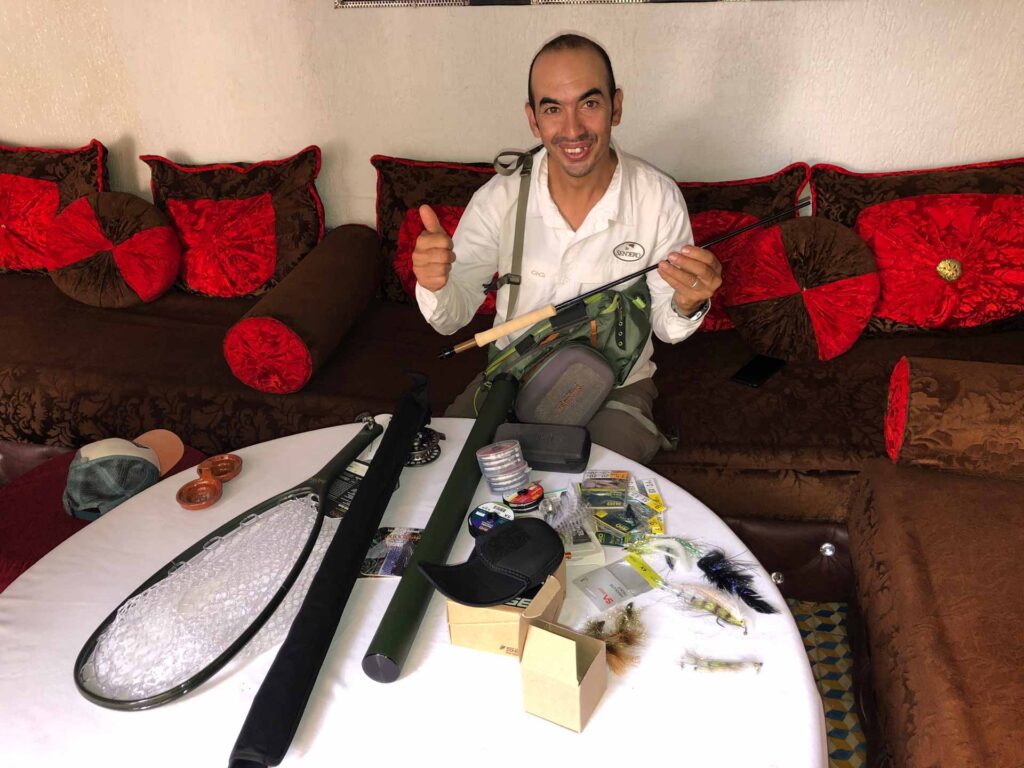
“It took me a while to believe what is happening as it was a tough year and a half,” Boutellaka wrote to his funders. He says he plans to replace broken rods with the award, and invest in fly tying materials, which are difficult to find in Morocco. “Getting such a gesture is just unbelievable.”
Since 2018, Boutellaka has been one of only four people in Morocco to complete a series of courses to secure his guiding and outfitting license, and he’s well-known for his inventiveness and adaptability in a region with few resources. He ties his own flies from the feathers of deceased birds he finds, making his creations entirely locally-sourced from Moroccan woodpeckers, mallards, and pheasants. He’s self-sufficient and used to making do with very little, previously selling ”discarded” goods from a carpet in his hometown of Azrou —items people culled from Europe and brought to Morocco to re-sell. He was certified to help residents in his town fill out home sales forms, and worked as a fact checker for Google, a side hustle with low pay and no time outdoors where he prefers to spend his time.
The Foundation is exploring new opportunities to link with Boutellaka and partners on longer-term conservation projects that aim to support and re-energize Azrou and neighboring regions. Additional conservation efforts aspire to protect relict brown trout populations that have lived in parallel with rural populations in the Moroccan mountains for well over a million years. Building relationships worldwide sits at the heart of the Foundation’s mission; it strives to revitalize conservation efforts in remote travel destinations around the world, with a passion for fly fishing at the core.
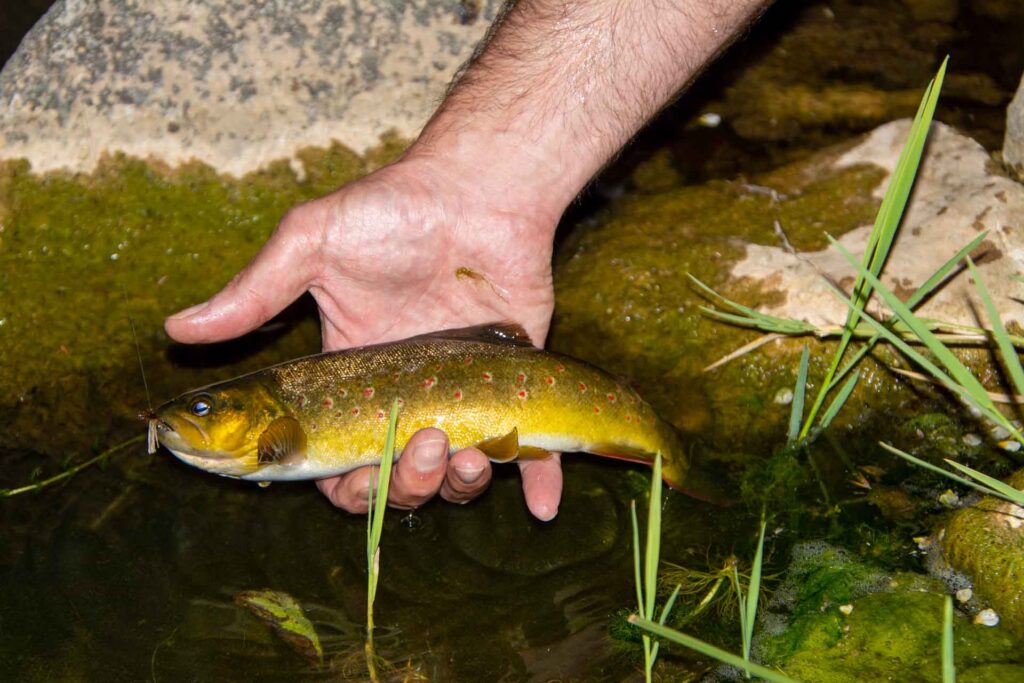
The North Africa investment dovetails with ongoing efforts in the kingdom to reboot tourism, build economic stability in local communities, and tap into agriscience and freshwater aquaculture to ensure a future of clean water and a healthy supply of fish.
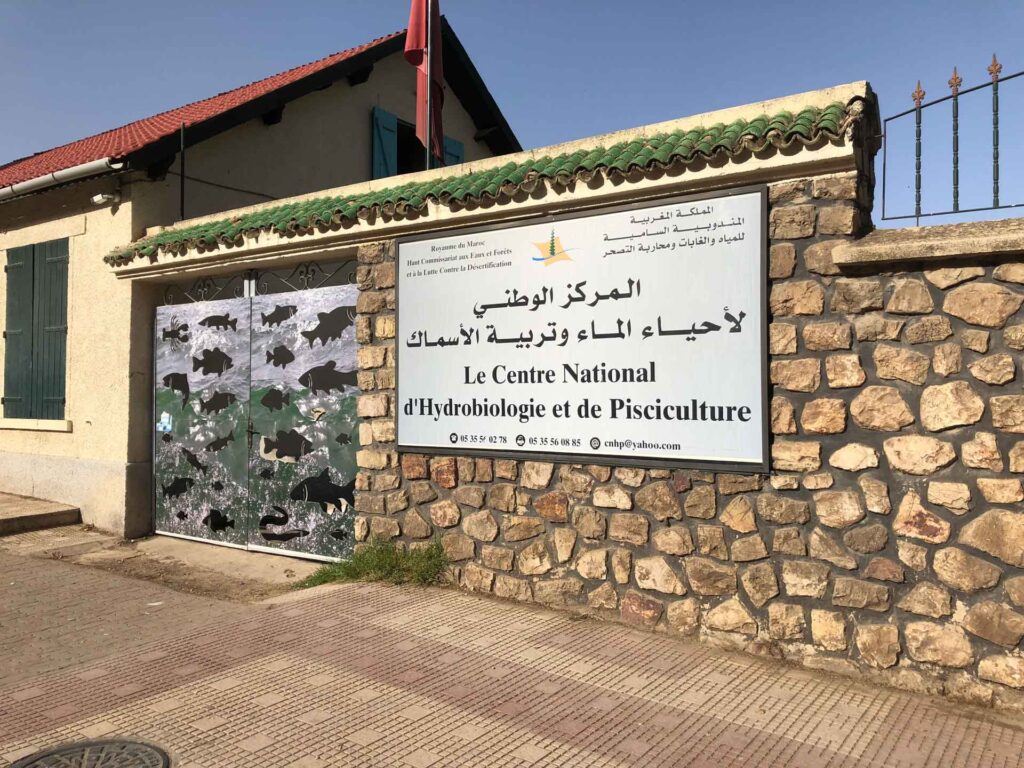
“The hardships we see most often are loss of wages or income due to a cessation of tourism because of the pandemic,” says Foundation co-Chair James Frazier. “But it could also include gear that would normally have been replaceable, payments for fishing access that you make but cannot get reimbursed for during the pandemic, or equipment and facilities that need repair.” Outfitters and fishing guides around the world are experiencing economic hardship due to COVID-19 travel restrictions.
Financial support for small, eco-tourism businesses encourages conservation, and in turn draws visitors to pristine, up-close experiences with wildlife on every continent. In Morocco, tourism contributes approximately 7% of the kingdom’s economic activity, with some estimates pointing to as many as 2.5 million Moroccans employed directly or indirectly in the industry. With so many popular destinations, it’s no surprise that 13 million foreigners traveled to Morocco in 2019.
The Ambleve Bedrock Foundation is here to smooth hard times for locally-run businesses that depend on globe-trotting anglers for their own economic survival.
Bibliography
Belghyti, D., Mustapha, A., & Mohamed, B. (2014). The main species of freshwater fish aquaculture interest in Morocco, Current status and prospects. International Journal of Fisheries and Aquatic Studies 2014, 2, 216 – 218. https://www.fisheriesjournal.com/archives/?year=2014&vol=2&issue=1&part=D&ArticleId=191
Eljechtimi, A. (2020, May 13). Morocco hopes to boost domestic tourism to save key sector. Reuters. Retrieved July 11, 2021, from https://www.reuters.com/article/us-health-coronavirus-morocco-tourism/morocco-hopes-to-boost-domestic-tourism-to-save-key-sector-idUSKBN22P2Q8
Food and Agriculture Organization of the United Nations, Abdellatif, O., & El-Ahdal, M. (2005-2021). National Aquaculture Sector Overview. Food and Agriculture Organization of the UN. Retrieved July 12, 2021, from http://www.fao.org/fishery/countrysector/naso_morocco/en
Ghanem, H. (2015, February). Agriculture and Rural Development for Inclusive Growth and Food Security in Morocco. Brookings. Retrieved July 11, 2021, from https://www.brookings.edu/wp-content/uploads/2016/07/Agriculture_WEB_Revised.pdf
UNDP Ecosystems & Biodiversity. (2019, June 4). Ancestral Ingenuity. Retrieved July 11, 2021, from https://undp-biodiversity.exposure.co/ancestral-ingenuity
World Finance. (2019, March 6). Inspiring a tourism revolution in Morocco. Retrieved July 11, 2021, from https://www.worldfinance.com/wealth-management/inspiring-a-tourism-revolution-in-morocco
Blog Post writing and research services provided by Finer Point Writing LLC.
All Photos courtesy of The Ambleve Bedrock Foundation and Morocco Unexplored.